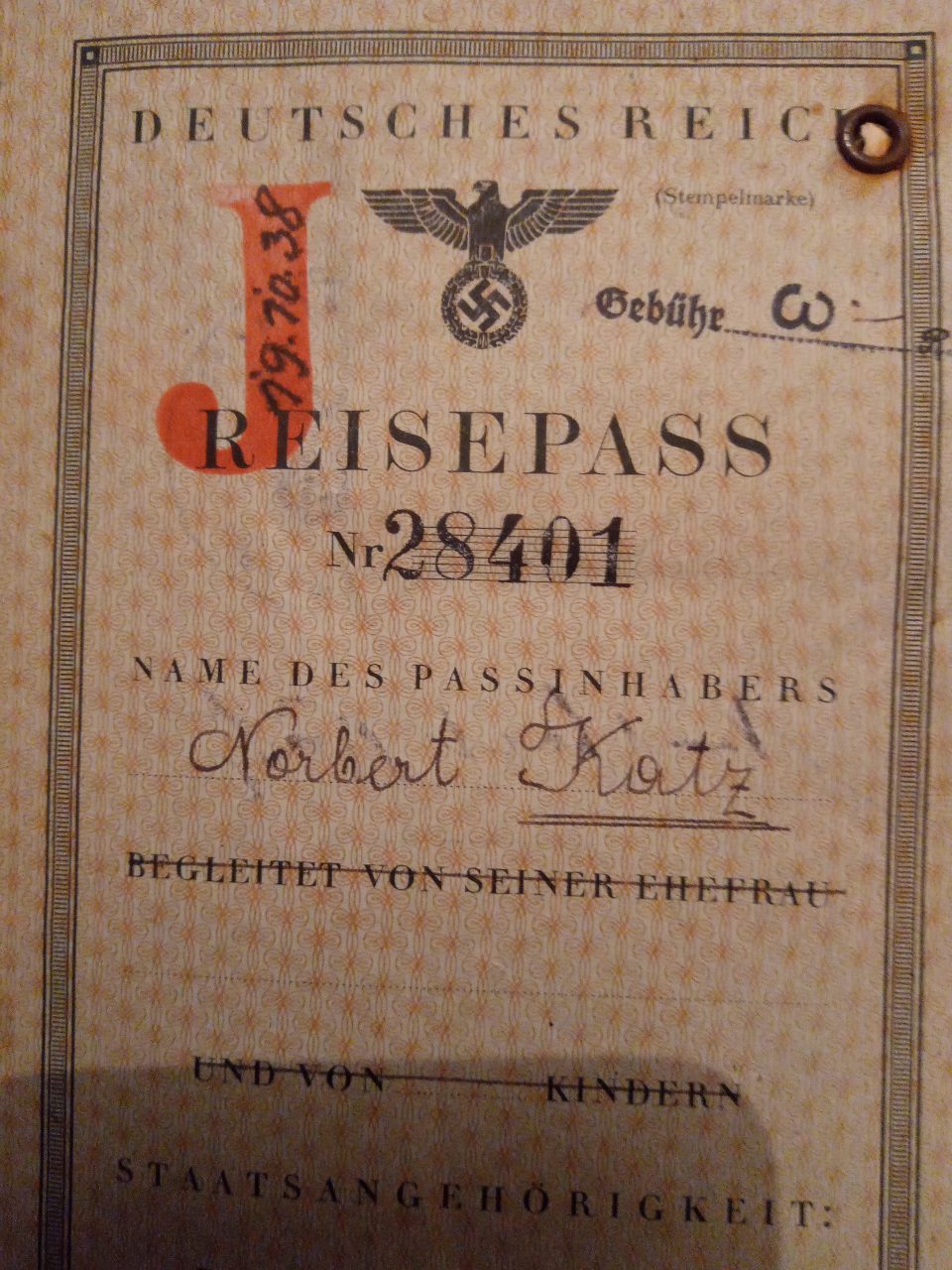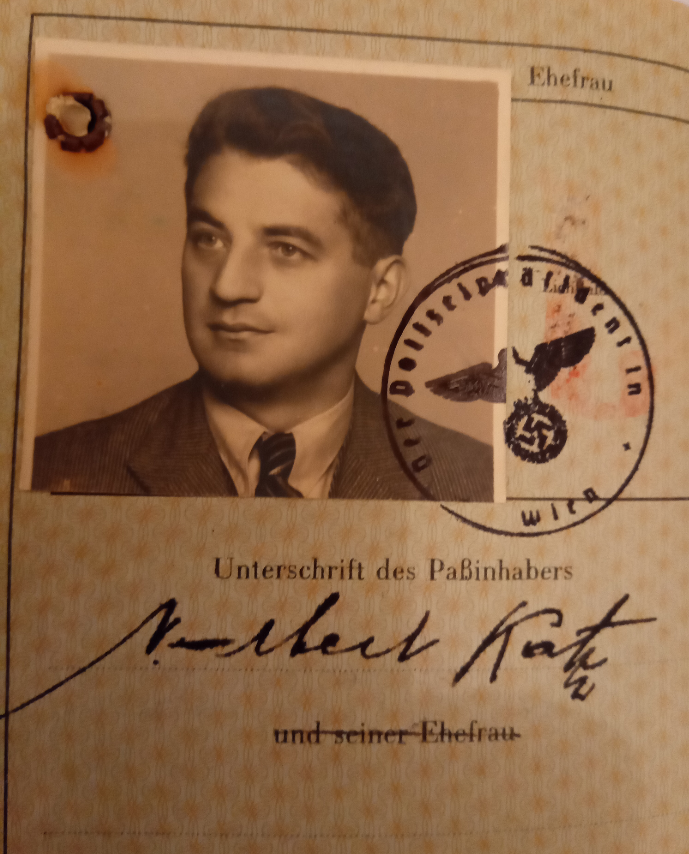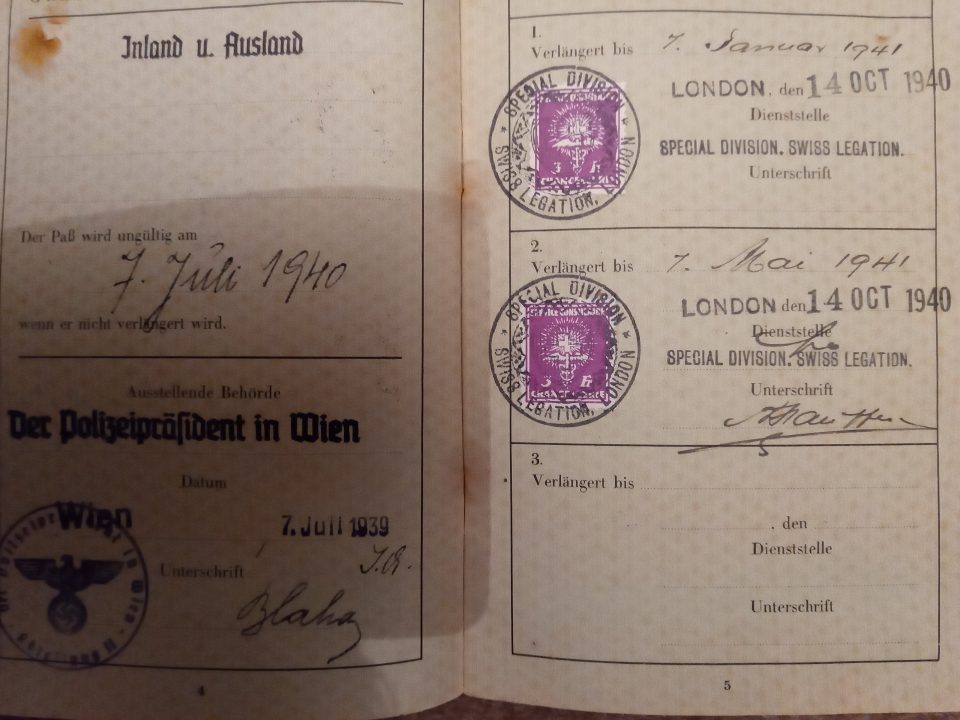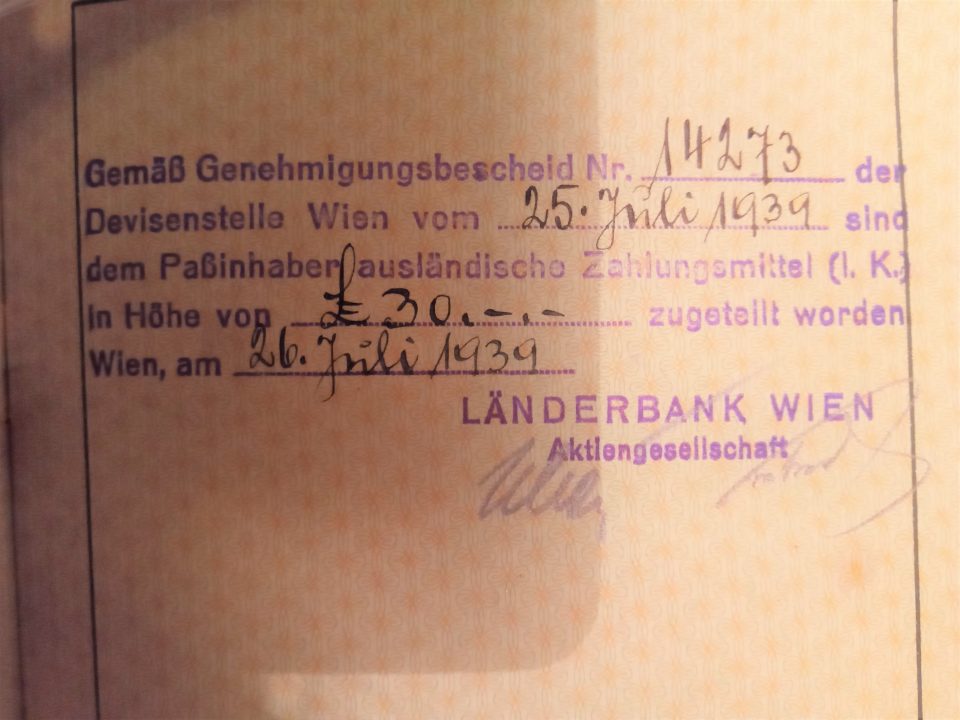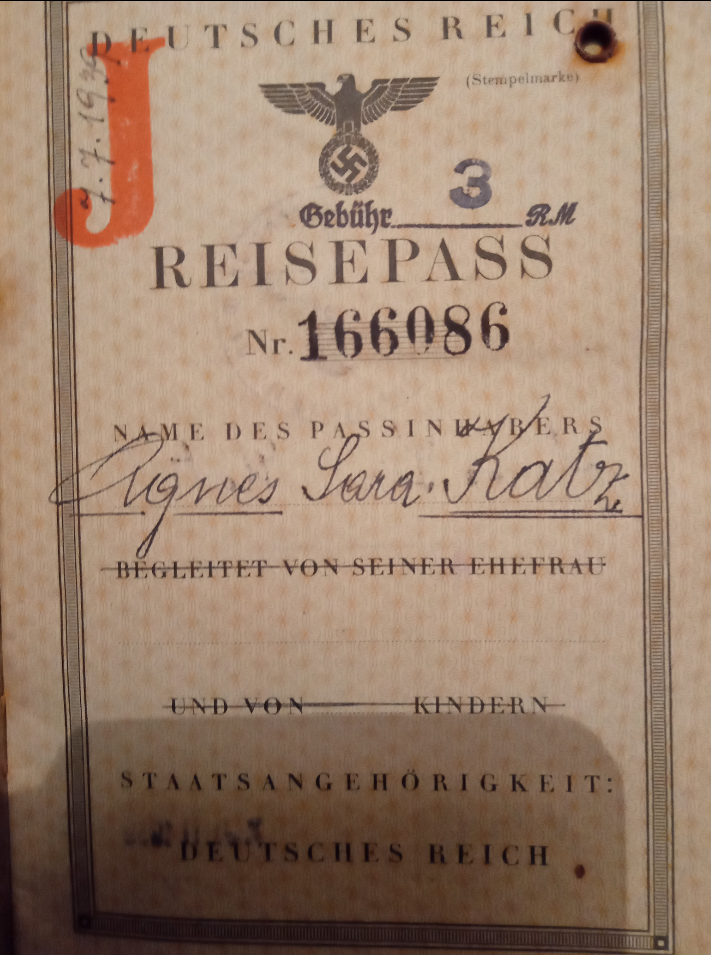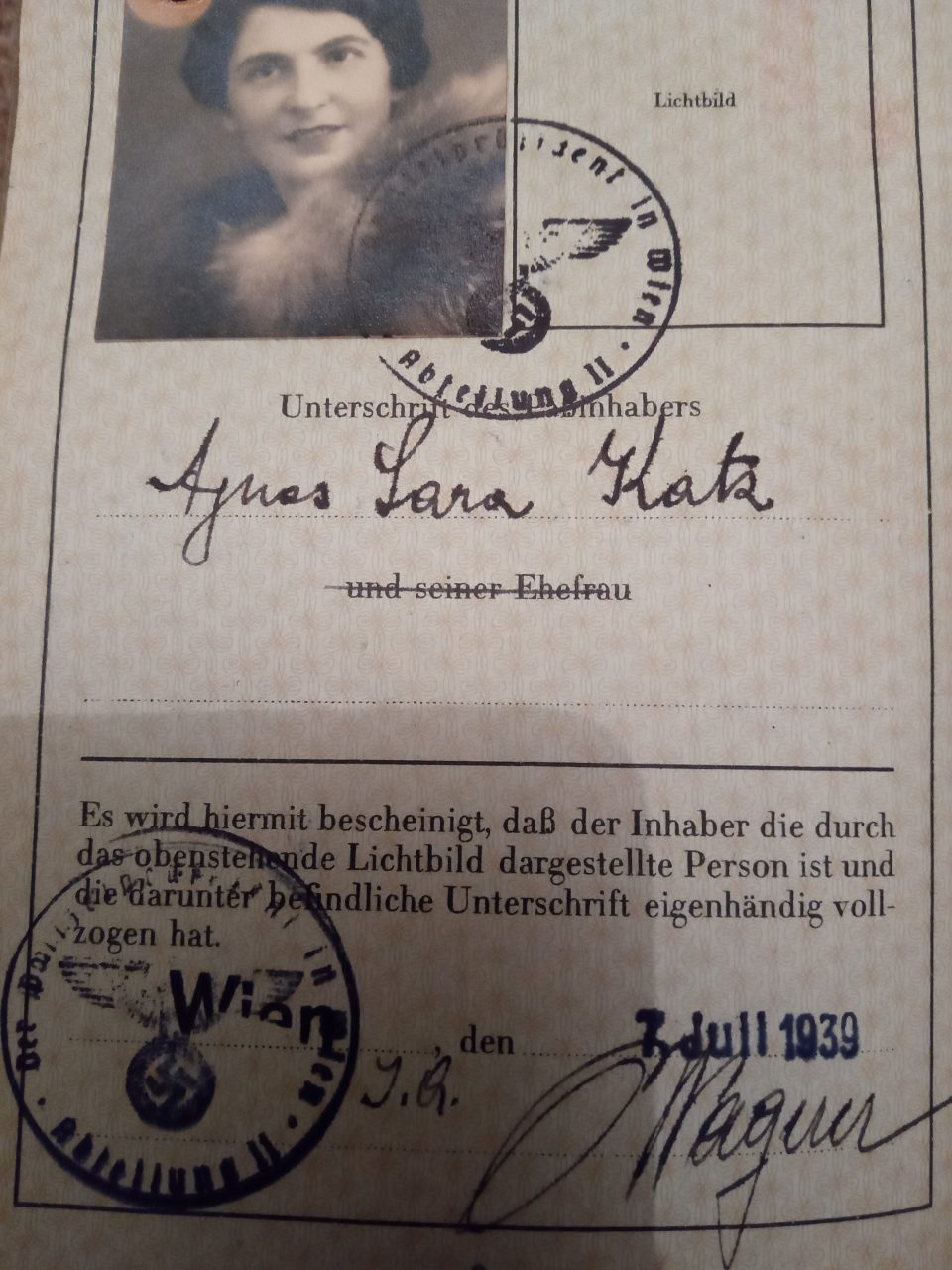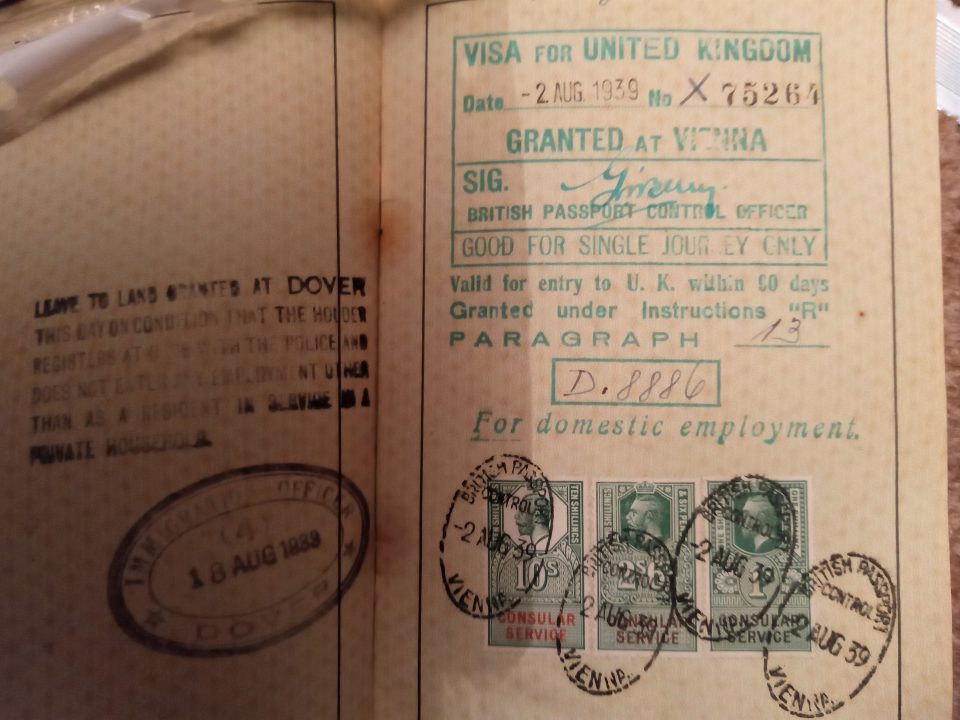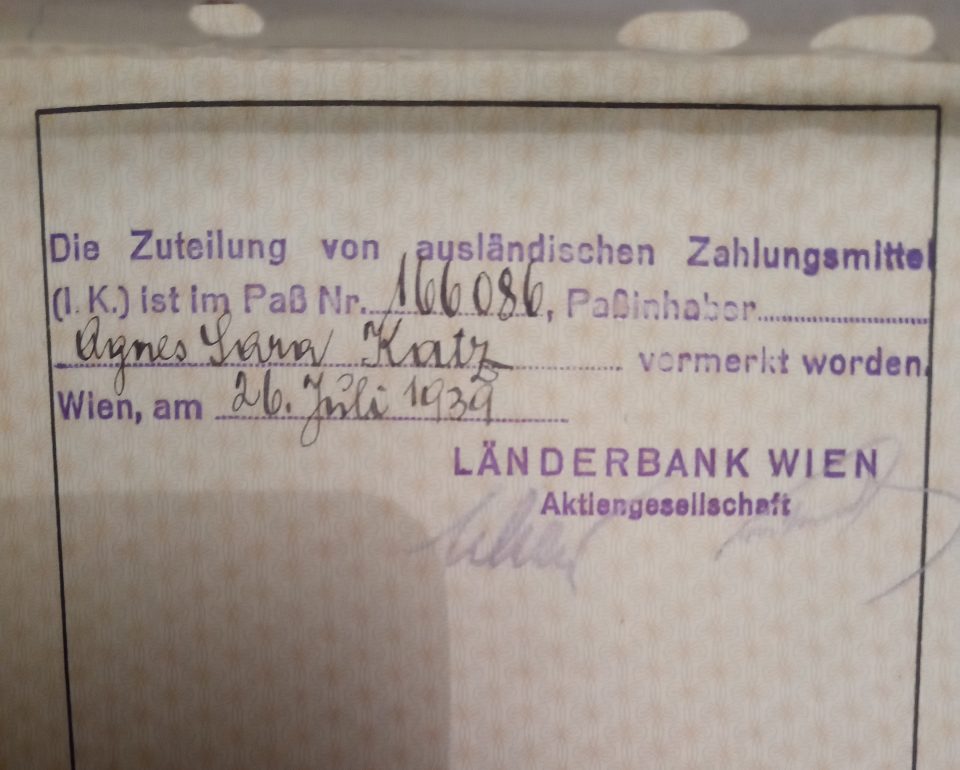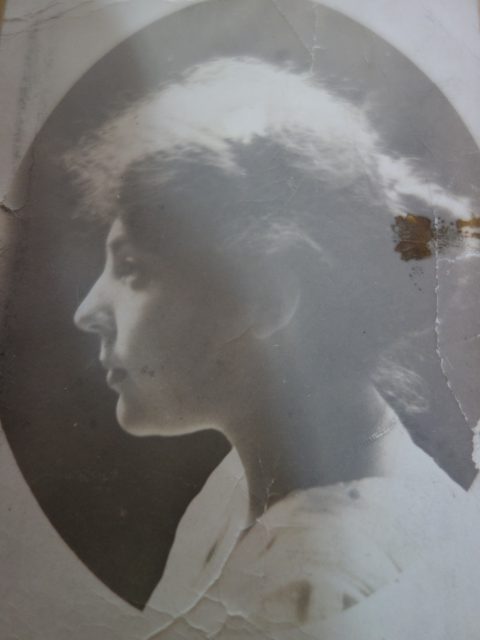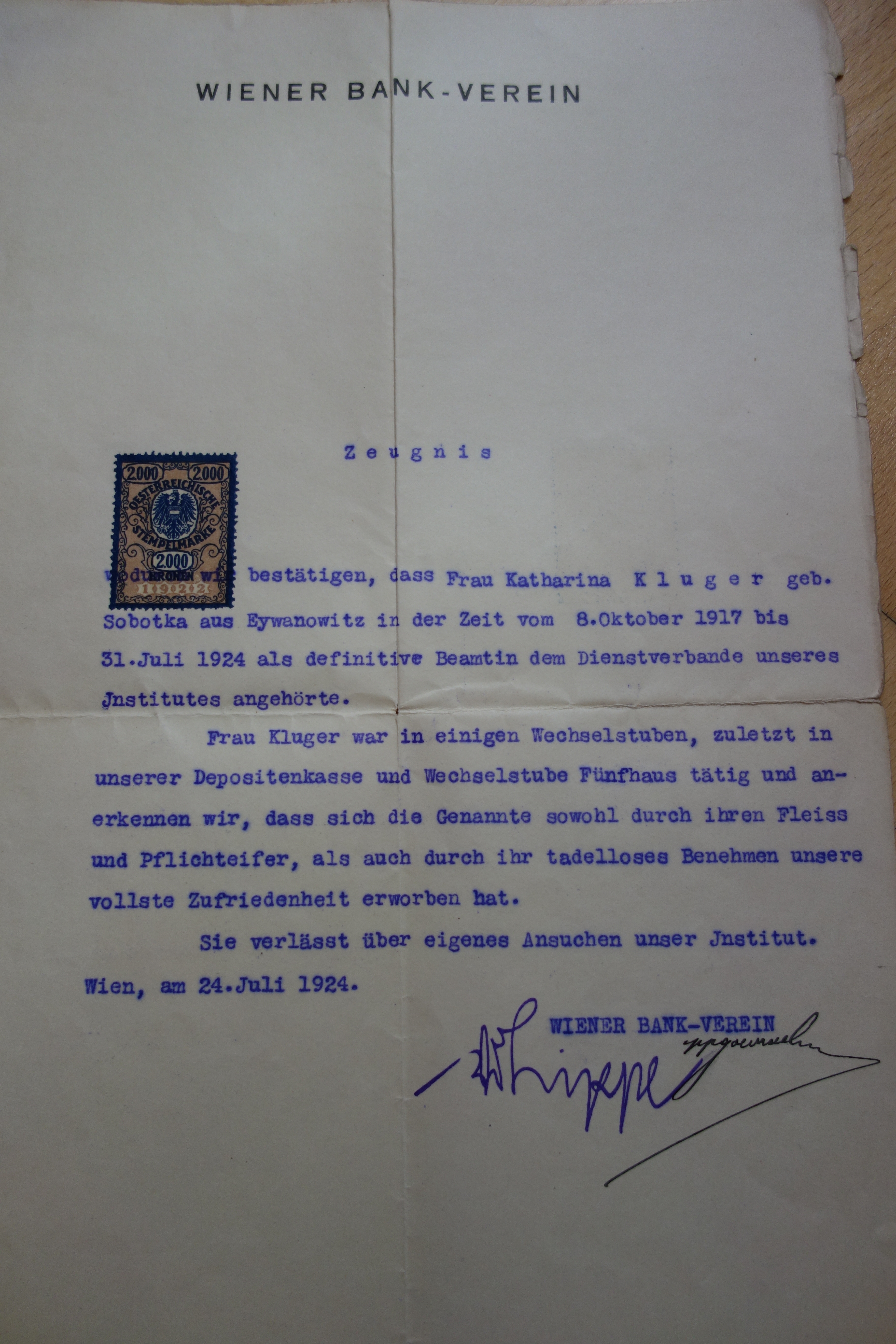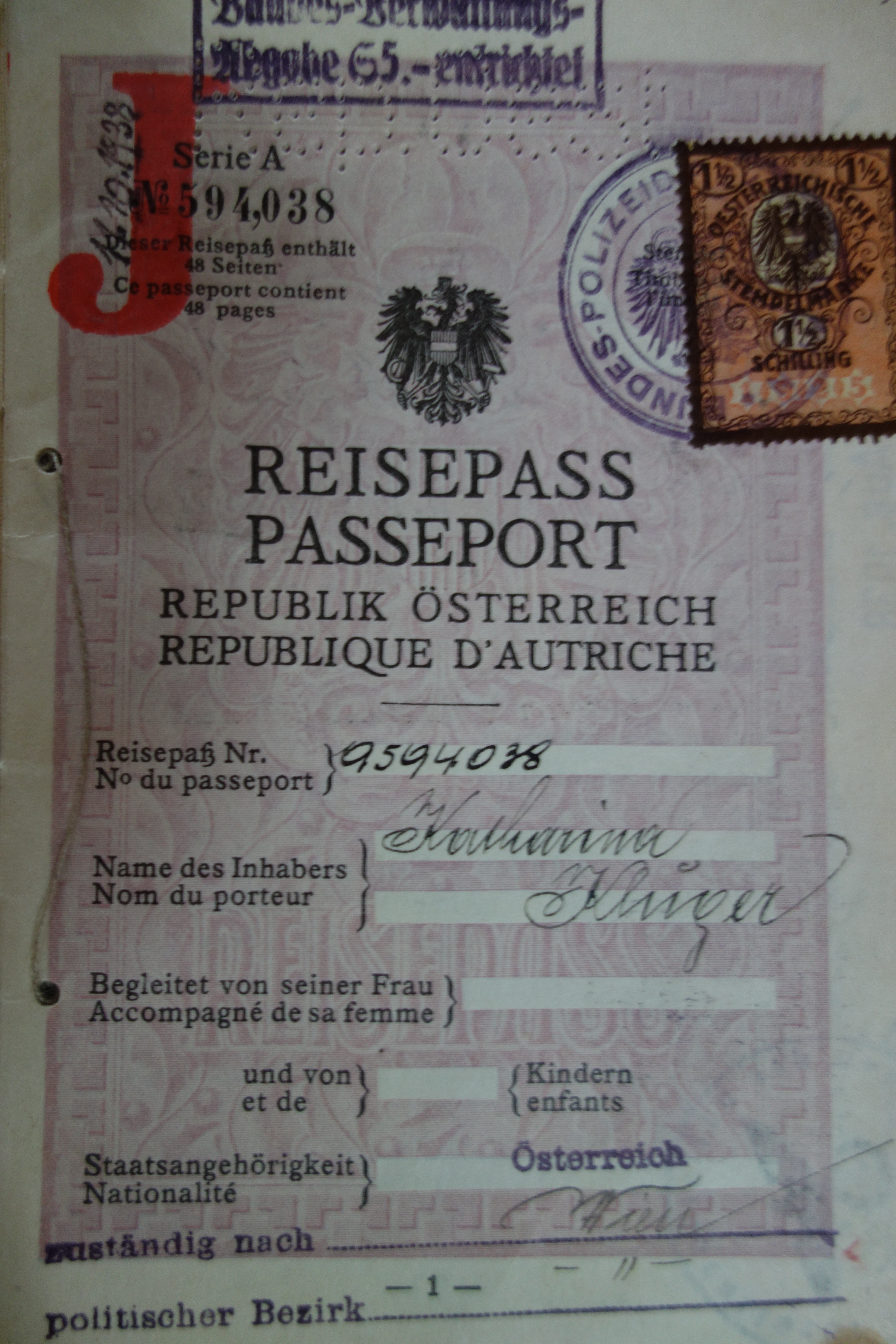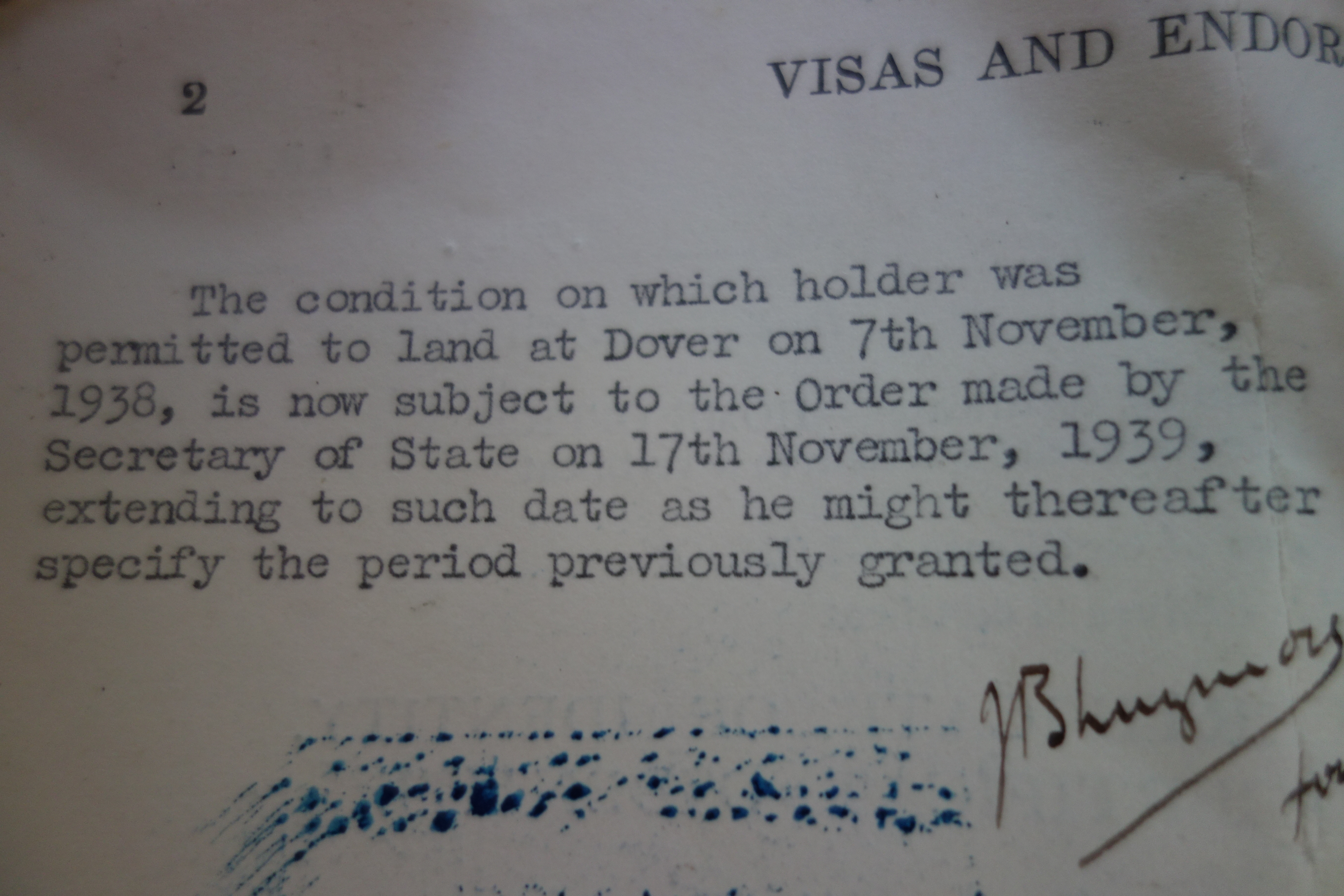BRITISH WORLD WAR II INTERNMENT CAMPS FOR ENEMY ALIENS ON THE ISLE OF MAN: HUTCHINSON INTERNMENT CAMP
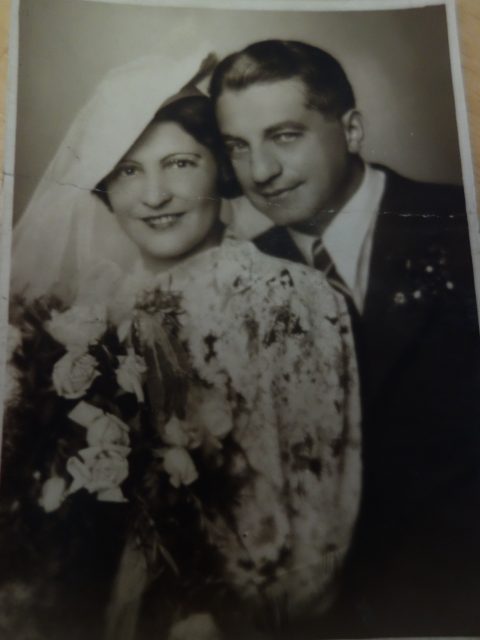
Agi and Norbert at their wedding in Vienna
The husband of Agi, Norbert, an excellent Austrian football player, managed a last-minute escape to England with the help of his sister-in-law, Käthe in a domestic household. Unfortunately as a fit young “enemy alien” he was considered a threat to British military security and interned on the Isle of Man after the outbreak of World War II.
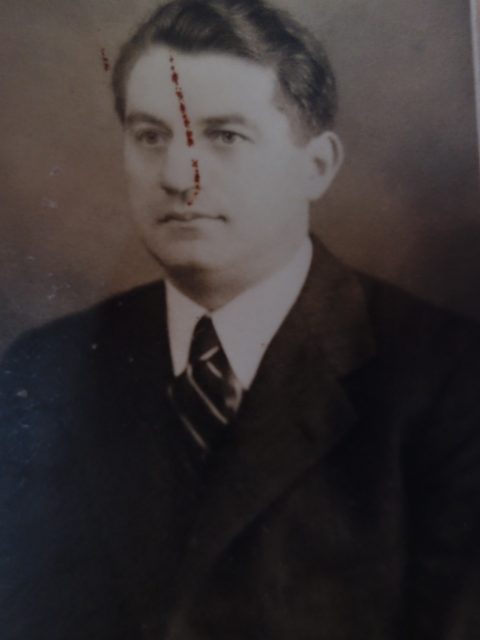
Norbert Katz as a young man
What were possible escape routes out of Austria? As a reaction to the threats against Jews in Germany and Austria and the resulting refugee crisis the US President Roosevelt initiated an international conference on the refugee problem out of Germany. From 6 to 14 July 1938 the Conference of Evian took place in Evian-les-Bains in France. Representatives of 23 countries took part. To allay fears that the United States would demand great concessions, the invited nations were told that no country would be expected to receive a greater number of emigrants than was permitted by its existing legislation and all new programmes would be financed by private agencies and not public monies. The purpose of the meeting was to facilitate the emigration of political refugees from Germany and Austria, not Jews. Despite extensive media coverage the conference ended without achieving significant results. On the contrary, the participating countries stated that they would on no accounts change their existing refugee policies. Representatives of the threatened Jewish communities were deeply disappointed by the results. The governments that participated were still unwilling to solve the problem and fell back on palliatives. The more difficult the tasks became, the smaller their will to deal with them efficiently. An Intergovernmental Committee, headquartered in London, was established to improve coordination, but it was still in a preliminary stage of development when the war broke out.
…

